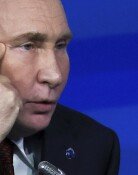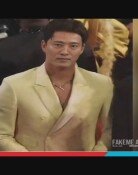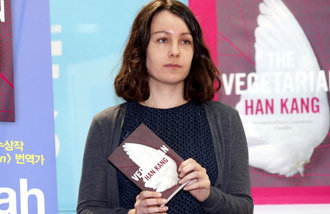Thinking of Suzuki-Chun Doo-hwan era
Japan once had a prime minister named Zenko Suzuki. He died 11 years ago, but I recently visited his home to make a call of condolence because his wife died. Suzuki became prime minister of Japan following the sudden death of Masayoshi Ohira, who died of a heart attack. As a young political reporter, I visited the Suzuki residence every day to cover the political drama of a sudden power succession. I felt as if the whole thing had happened just yesterday.
Come to think of it, I remembered one episode. When I visited Prime Minister Suzuki in September 1981 to say good-bye as I had a chance to study in Korea, the first thing he said was, "Be careful not to get arrested." I was a little disappointed, wondering if that was his good-bye message. Not that I did not understand what he meant.
At that time, just a year had passed since the Chun Doo-hwan administration came to power after oppressing the Gwangju Democratization Movement. Kim Dae-jung, a leading dissident, was incarcerated. The regime`s oppression of the media became noticeable, as Seoul bureaus of Japanese newspapers were shut down one after another and Japanese journalists were ordered to leave the country. It may be that in addition to worrying about my safety, Suzuki hoped I did not cause any diplomatic trouble.
One year from then, I had spent my time in Seoul safely. Once, someone who suspected my behavior reported to the police that I was a spy. However, the misunderstanding cleared up soon, and there wasn`t anything that could have caused Suzuki`s concerns.
However, Kim Dae-jung`s safety remained a major concern for Prime Minister Suzuki. Kim`s death sentence was reduced to life imprisonment in January 1982, and he later went to the United States under the name of medical treatment. It was the Suzuki government that, together with the United States, put pressure on Seoul for Kim`s release. As Kim was the victim of an abduction incident that happened in Tokyo in 1973, his safety was also a matter of Japan`s concerns.
Separately, there was an incident involving "history distortions" in Japan`s school textbooks in June 1982. South Korea and China criticized the textbook issue, arguing that Japanese high school history books "embellished the past history of aggression and colonization," which was reviewed by the Japanese education ministry. Living in Seoul, I felt as if I was being blamed for the "distortion," which made headlines on newspapers and TV news shows every day.
The Suzuki government had a hard time responding to the issue, which was not resolved until Chief Cabinet Secretary Kiichi Miyazawa (who later became prime minister) released a statement, promising to cooperate with Asian neighbors over the modern history textbooks.
In retrospect, there was some kind of awkwardness between Seoul and Tokyo even though 17 years had passed since the two neighbors signed a basic treaty normalizing bilateral relations. The two nations were ideologically on the same side, but one had a military dictatorship government oppressing pro-democracy activities, while the other was a former colonial ruler not repenting enough for the past. Such a conflicting situation spelled plenty of trouble for Prime Minister Suzuki.
Thirty years have passed since then. There has been a sea change in the situation, as South Korea achieved democratization a long time ago, while Japanese prime ministers have apologized repeatedly for the past history. Nevertheless, the latest Seoul-Tokyo relations somehow remind me of those days.
For starters, South Korea indicted the Seoul bureau chief of the Japanese daily Sankei Shimbun on charges of defaming President Park Geun-hye. The Korean government`s pressure on press freedom, albeit much less tense than in the past, reminds me of Prime Minister Suzuki`s worries about me. The indictment has caused the Japanese government to question if the two countries shared basic values.
On another side, the current rows over perception of history are a reminder of the days of the history textbook issue. What were the apologies and reconciliatory gestures in the 1990s for? Probably, Japanese Prime Minister Shinzo Abe is greatly responsible for the situation.
Compared with the 1980s, the relations between the peoples of the two countries have improved by leaps and bounds. However, the situation is much more difficult because distrust between the two governments is too big. The Suzuki government endeavored to resolve the history issue at any rate. The Chun Doo-hwan government shifted its stance from using the anti-Japan sentiment to controlling it. Prime Minister Yasuhiro Nakasone, who came in power following Suzuki, made a surprise visit to Seoul to improve the bilateral relations in one fell swoop, before inviting Chun to pay a state visit to Japan.
It was the serious time of the Cold War, and South Korea was afraid of the Soviet Union and China. Needless to say, the situation is now totally different from then. However, it would be extremely regrettable that Seoul and Tokyo are becoming too distant from each other just because of the change.
There are two months left before the 50th anniversary of the normalization of the Seoul-Tokyo relations. I pray that Seoul`s lifting of a ban on the Sankei journalist from leaving the country for the first time in eight months will lead to a thaw in the bilateral ties.
(Written by Yoshibumi Wakamiya, senior fellow of Japan Center for International Exchange and former chief editor of the Asahi Shimbun)
Headline News
- Biden authorizes Ukraine to use long-range missiles against N. Korea's troop deployment
- Democratic Party criticizes court in charge of Lee’s case for ‘judicial murder’
- Jannik Sinner achieves remarkable success on tennis court
- Xi Jinping asks Yoon to visit China first
- Chey Tae-won appointed as chair of APEC CEO Summit







